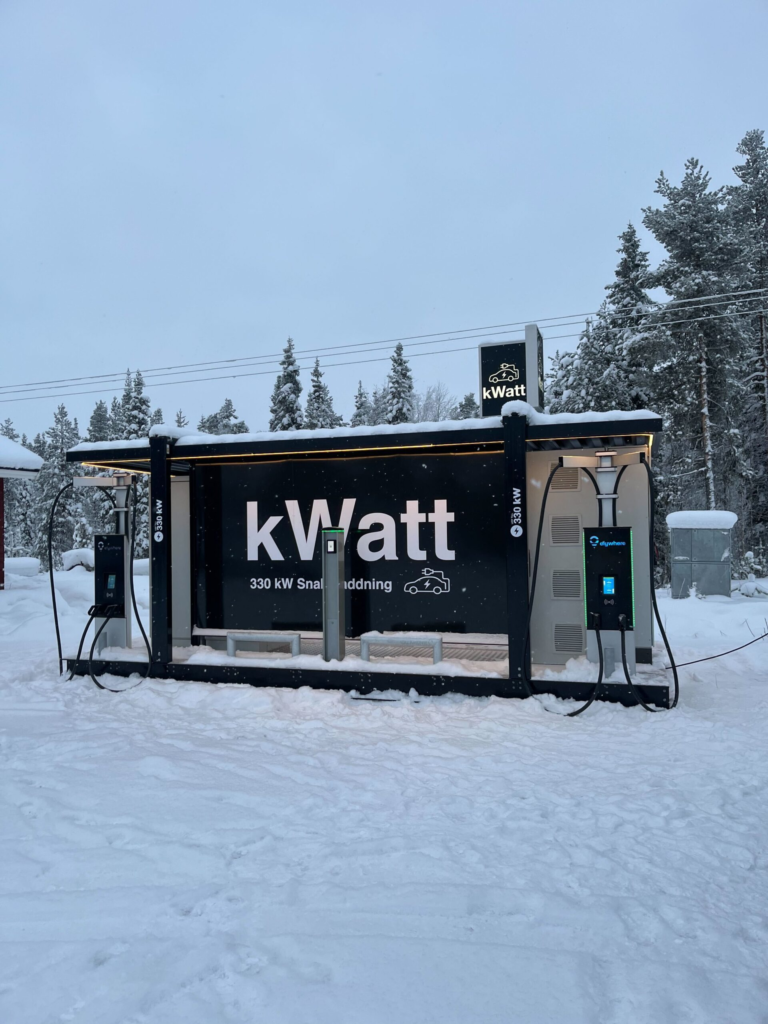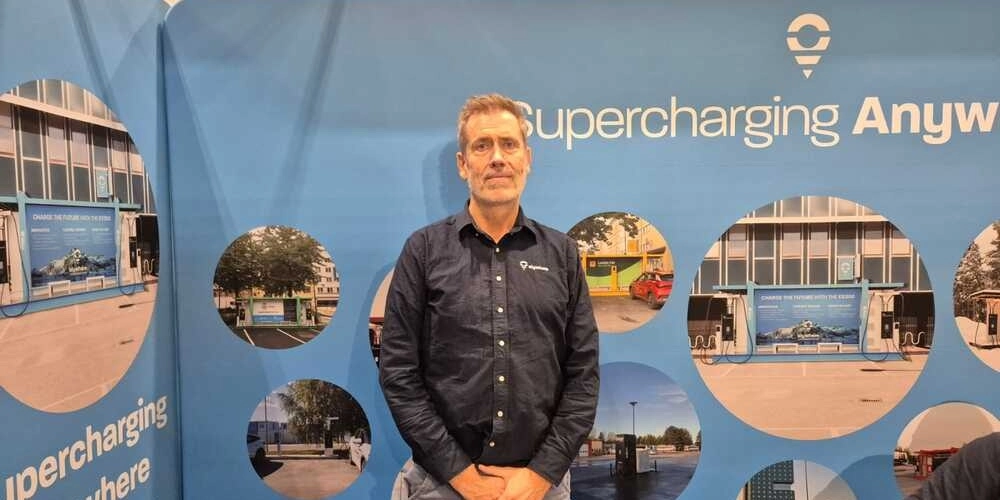In the heart of the Norwegian mountain range, a pioneering project is making significant strides towards revolutionising electric mobility, led by Elywhere.
This increasingly recognised company within the electric vehicle (EV) charging industry has successfully installed a battery storage charger in one of the country’s most challenging locations.
Situated in a national park between southern and western Norway, this location is characterised by its mountainous terrain, with peaks reaching 2,000 metres in altitude.
“The Norwegian Road Administration is conducting a trial this winter with an electric snow plough, the first of its kind,” explains Nils Roald, Chief Product Officer, to Mobility Portal Europe at the London EV Show.
This initiative not only showcases the company’s ability to tackle extreme conditions but also highlights its commitment to accelerating the energy transition in areas where electrical infrastructure is either insufficient or non-existent.
The system installed by Elywhere is no ordinary one.

Its functionality lies in the integration of energy storage batteries directly within the charging device.
“Our system allows the station’s fixed batteries to recharge when not in use and provides fast charging when needed,” Roald explains.
It is important to note that this trial will take place under extreme conditions, with temperatures ranging from -20 to -30 degrees, deep snow, and storms.
“We are excited to see how we can contribute to keeping the roads open between eastern and western Norway during the winter,” he adds.
The advantage of this technology is clear: the installation is not dependent on an overloaded electrical grid, but can operate autonomously, using stored energy to provide ultra-fast charging in critical moments.
Such solutions are essential in places like Norway, where extreme winter conditions and limitations of traditional power supplies complicate the installation of chargers.
“When you usually need permits or network upgrades, our system allows you to start quickly,” says Roald.
In this regard, the installation of energy storage devices opens up new possibilities for advancing accessible eMobility, even in rural areas.
Elywhere’s interest in these types of projects is no coincidence
“We see it as a very promising market because our biggest advantage is that we can offer ultra-fast charging with very limited power connections, even with as little as 63 amps,” he asserts.
This is crucial in Norway, where nearly 40% of cars are electric.
“In September, 90% of sales were EVs,” says Roald, highlighting the remarkable progress in the country’s shift to electric mobility.
However, he emphasises that in order to maintain this momentum, incentives must continue to be provided.
Although EVe prices have dropped and adoption of the technology is rising, the challenges remain the same: the charging infrastructure needs to improve rapidly to sustain market growth.

In this context, Elywhere is focused on ensuring that EV users can enjoy an uninterrupted charging experience, even in the most remote areas.
The company is also actively working on other key aspects for infrastructure development.
In the northeast of the country, for example, the current trend is to ensure greater resilience and higher operational uptime, according to the expert.
Trucks transporting salmon, a crucial product for the Norwegian economy, must have access to fast charging points in order to make short stops along the way and continue their journey.
The key lies in providing a full charge in just 45 minutes, the amount of time truck drivers spend on mandatory breaks.
“Without this type of infrastructure, they could wait up to 10 hours to charge, which puts the product’s quality at risk,” he explains.
In this regard, Elywhere has identified an increasing demand for direct current (DC) chargers, particularly in rural areas and for heavy transport.
What are their expansion plans?
Elywhere already has a presence in several European countries, although the United States’ market is temporarily off its radar due to the strict certifications required there.
“Our focus remains on Europe,” says Roald.
The company has high expectations in markets such as the United Kingdom (UK), where they are beginning to enter, attracted by the opportunity to offer fast charging solutions in areas with limited energy supply.
“We see that the electrical grids in the UK and Ireland, for example, face many problems, similar to what happens in Norway,” he states.
He adds: “That’s why our product fits well in this market.”
The integration of energy storage in each Elywhere unit enables greater autonomy and faster installation.
“We implement our systems without the need for special construction work. It’s simply placed and operational within hours, rather than months or years,” Roald explains.
Moreover, the company is also innovating in the software that manages these chargers.
With its Elywhere:connect platform, the firm is creating a comprehensive ecosystem that connects multiple charging systems, energy storage, and management into a single intelligent solution.








